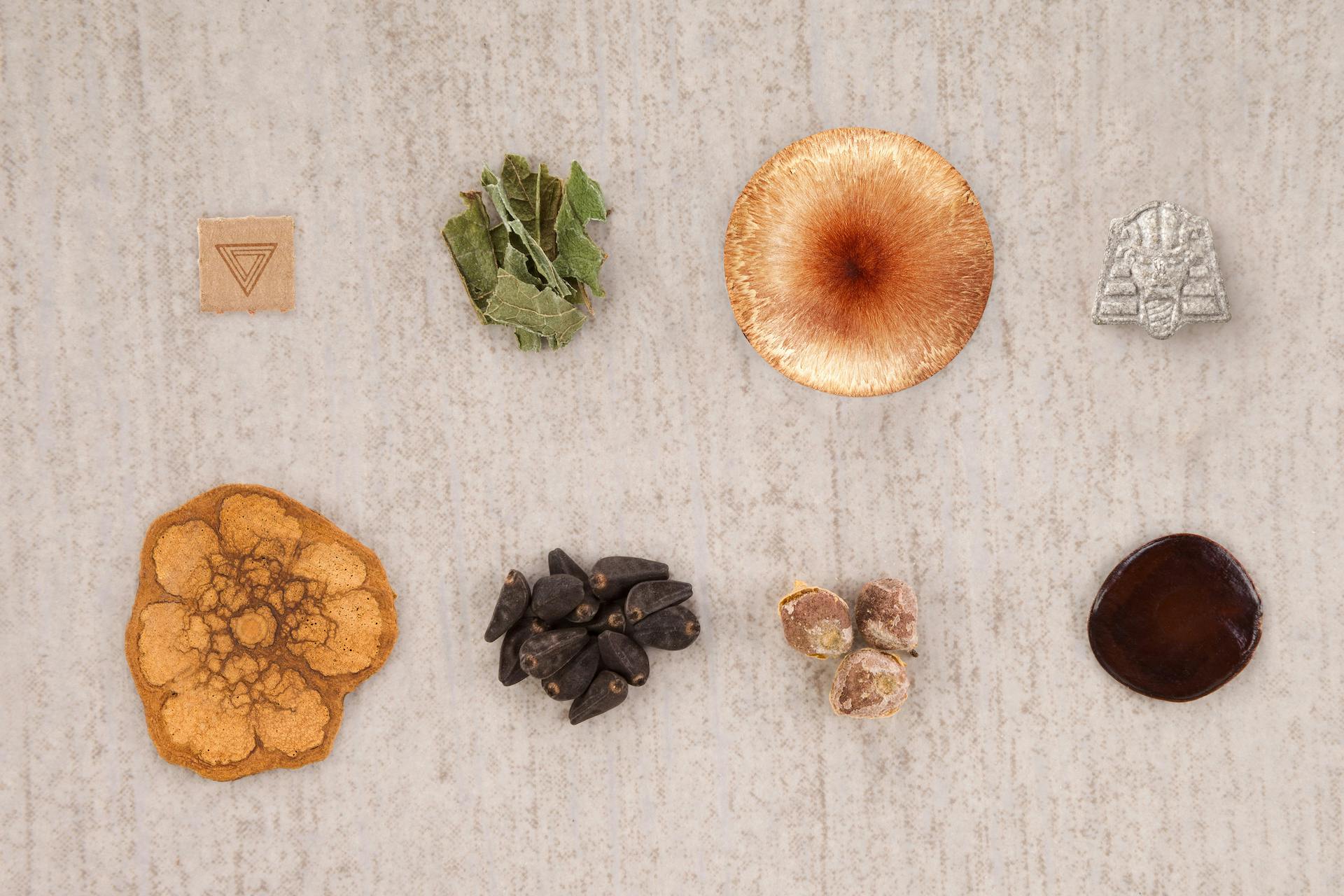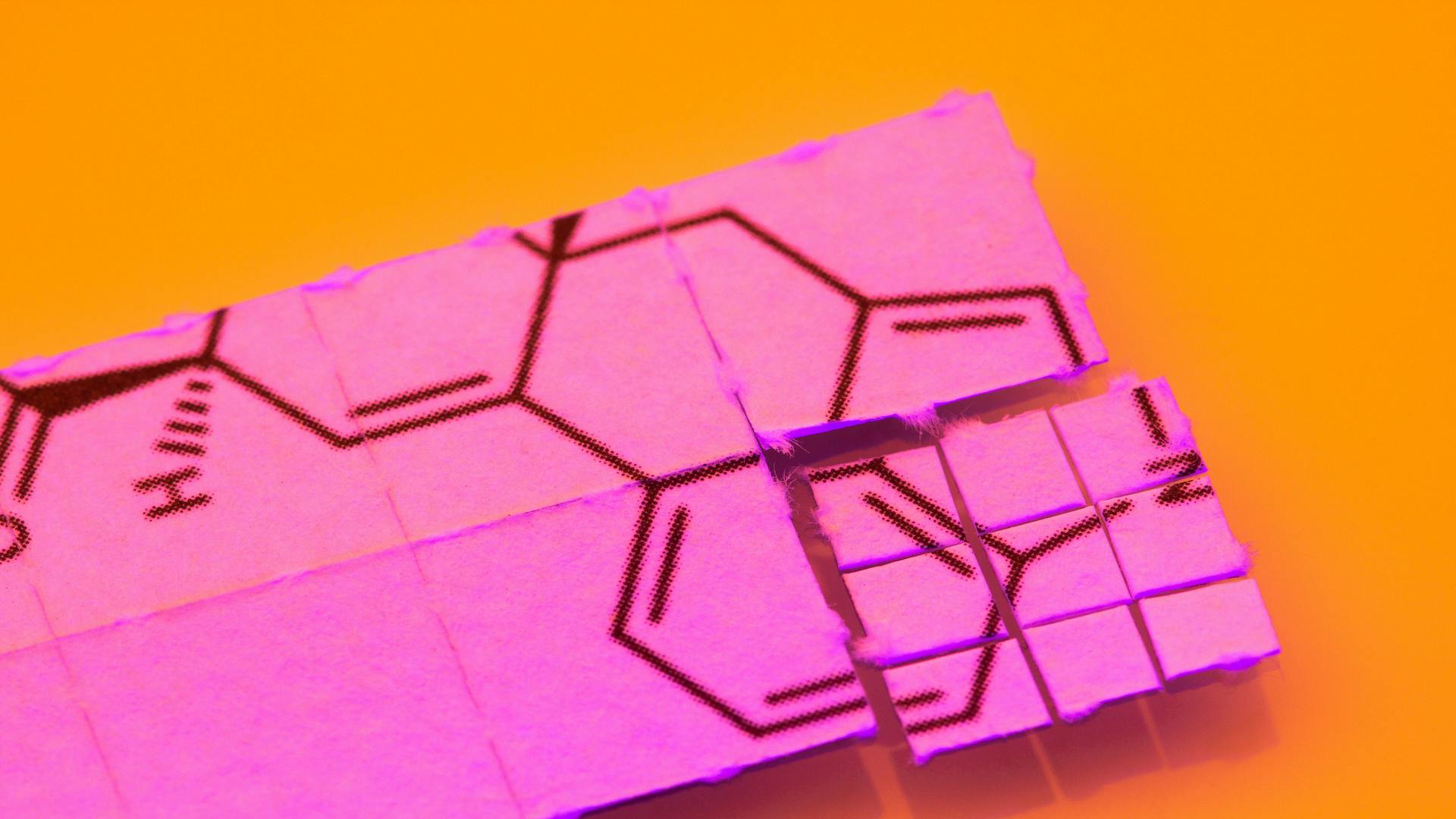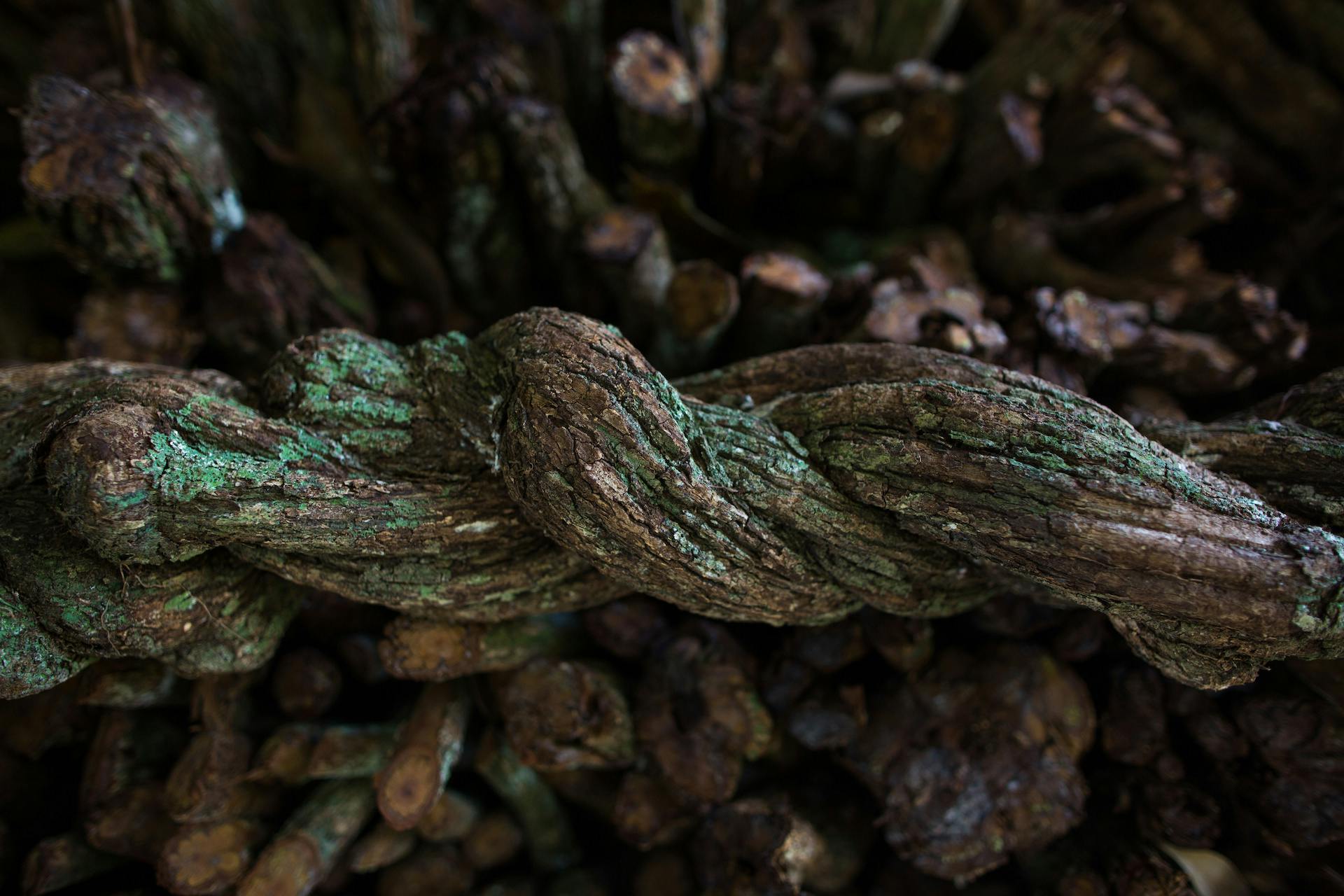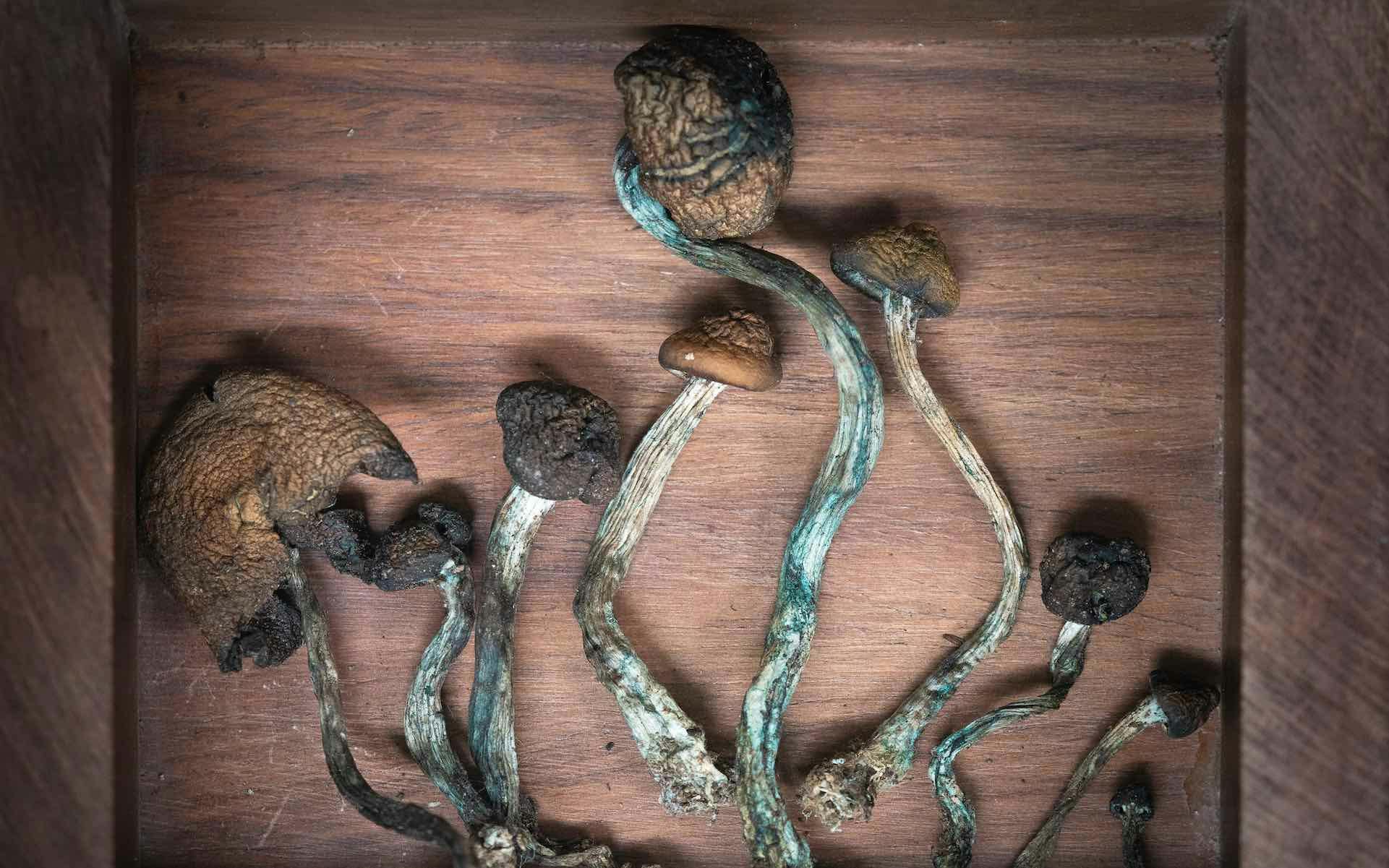Written by Emma Stone

Known as the Mt. Everest of psychedelic substances, those who have taken and journeyed with iboga can attest to its ability to enact profound personal transformation. Studies have also found that iboga appears to be particularly powerful in treating stubborn, harmful addictions, such as opioid use disorder.
However, those who have experienced iboga are quick to point out that the substance is a strong medicine and must be treated with reverence. Like an ascent up Everest, a journey with iboga can irrevocably change the course of an individual’s life for good. Taken without due preparation and guidance, however, iboga can be harmful, or in rare cases, fatal.
What are iboga and ibogaine?
Iboga is a small fruiting shrub that’s found in central West Africa, especially in Gabon, Cameroon, and Congo. Iboga has been translated as “to care for” or “to heal” in tribal dialects of the Congo Basin. The sacred plant has been used for centuries as a medicine and sacrament, particularly in the spiritual tradition of Bwiti, a cultural path and spiritual discipline embraced by many tribes indigenous to central West Africa. Iboga is verging on endangered status due to growing foreign demand and unsustainable harvesting.
Iboga contains a psychoactive alkaloid called ibogaine. “Ibogaine is a naturally occurring psychoactive compound found in the root bark of the African shrub Tabernanthe iboga, as well as other plants in the Apocynaceae family,” explained Dr. Srinivas Rao, Chief Scientific Officer at atai Life Sciences.
But ibogaine isn’t the only active compound found in iboga. There are diverse bioactive alkaloids present in the plant that may contribute to an entourage of effects.
In the cannabis lexicon, the entourage effect refers to the unique synergy that arises from the interaction of many assorted compounds, including cannabinoids, terpenes, and more. This whole-plant synergy creates an effect that is more than the sum of its parts.
Those who are well-acquainted with iboga also emphasize that whole-plant iboga yields an experience distinctive to that of ibogaine.
Ingesting iboga, the plant, as opposed to ibogaine, may also make for a more heightened psychedelic experience, capable of fostering personal and spiritual growth rather than solely treating addiction.
How does ibogaine work?
Dr. Rao emphasizes that ibogaine is distinct from other “classical psychedelics” like psilocybin, DMT, and mescaline, because it interacts with the body’s neurotransmitter receptors in a distinctive way. Neurotransmitter receptors can be thought of as docking stations that psychedelic compounds can bind to, triggering changes in brain cells.
After ingestion, ibogaine is metabolized by the liver, which sets off another cascade of effects, including effects on the body’s opioid receptors, creating a unique response in the body, which may help account for ibogaine’s ability to treat addiction.
Unlike other treatments for addiction, ibogaine doesn’t appear to substitute one addiction for another, as can be the case with methadone. Many people who journey with iboga to treat addiction can benefit from a single session.
Concerns with taking ibogaine
The metabolization of ibogaine can create dangerous interactions with foods and other drugs.
There have been a total of 33 ibogaine-related deaths reported to date, the majority of which occurred in unsafe settings without proper medical monitoring.
In many of these cases, the exact cause of the fatalities was difficult to determine due to incomplete information from forensic and toxicologic investigations. However, most of the individuals who died had been using other medicines or drugs that should not have been used with ibogaine, or had existing cardiovascular disease or comorbidities that rendered them more vulnerable to adverse effects.
Elizabeth Bast, author of Heart Medicine: A True Love Story—One Couple’s Quest for the Sacred Iboga Medicine & the Cure for Addiction, emphasizes that iboga is unlike any other psychedelic, and even microdosing presents serious risks without proper screening, education, and support.
“Often we hear, ‘I’m a seasoned psychonaut, so I’m sure I can do this on my own.’ Nope! We’ve heard of such people passing out cold, aspirating from hard purging, falling due to the trembling limbs of ataxia, and having adverse medical events due to unknown contraindications,” said Bast.
“It’s essential to have comprehensive medical screening and medical support 24/7 throughout ceremonies—and not just any medical professional, but a professional that deeply understands this medicine,” she continued.
Benefits of iboga
The treatment of addiction, and particularly opioid use disorder, attracts many to iboga. Opioid addiction has been recognized as one of the most harmful drug addiction epidemic in American history.
“In 2020 alone, opioid use disorder cost the lives of 70,000 Americans,” said Dr. Rao.“In just a single dose, ibogaine has shown the potential for the treatment of opioid use disorder by promoting long-term abstinence, and may also have potential in reducing cravings and addiction relapse.”
“I came to iboga due to an opiate addiction that couldn’t be shaken,” said Levi Barker, an iboga provider at Iboga Wellness Center in Costa Rica. “Iboga is the most potent tool to interrupt the physical withdrawal of opiates—but getting clean was just the start.”
Barker emphasizes that the cultural lens through which he experienced iboga was fundamental to his experience. Through working with iboga under the guidance of the shaman, Barker realized that he had embodied a belief that his addiction to drugs was genetic. Iboga offered a way to understand that addiction wasn’t his genetic destiny, but the results of his beliefs and actions—something he could change. In addition to this profound realization, there were other breakthroughs.
“Overall iboga has brought me from a life of addiction, taught me how to think, make decisions, handle my emotions, manage my mind and how to connect with my intuition for guidance,” he said.
Barker underwent training to become an iboga provider, was initiated into the Bwiti tradition in Africa, and now supports others journeying with iboga. He treats people with a wide variety of problems: addiction, depression, anxiety, veterans with PTSD, bad childhood experiences, abuse of all types, OCD, negative-looping thoughts.
“There is another portion that come in who are on the spiritual path and may not have huge life problems, but know there is more inside of them that they want to bring out—like entrepreneurs and spiritual seekers,” he said.
Elizabeth Bast was initially drawn to iboga to heal PTSD and her husband’s opiate relapse. Bast recalls that their first shared iboga ceremony transformed both of their lives.
Bast also emphasized that the power of the medicine lay in experiencing it within the traditional Bwiti context. Bast and her husband, Chor Boogie, are now both initiated in the Bwiti tradition and have undergone immersive training to support others journeying with iboga. Both also continue to work with the plant themselves for other reasons.
“We’re no longer called to iboga for core healing,” she said. “We’ve come to learn that healing addiction is a very small thing that this master plant can do. It is primarily for spiritual discovery, insight, visionary creativity, [and] problem-solving.”
What are the effects of iboga?
Iboga can deliver one of the longest trips of any psychedelic—up to 36 hours, according to Dr. Rao. While all psychedelic journeys are unique, those who experience iboga frequently describe three phases in the unfolding of the plant’s effects.
- The first phase can include dizziness, a lack of coordination, nausea, and vomiting. Consumers may revisit memories, unearth repressed feelings and emotions, experience visions, or undergo ego death.
- The second phase sees a turn to a more introspective phase, where the mind processes what has arisen in the first part of the journey.
- The final phase marks a gradual return to the external environment, as the psychedelic experience fades. Some participants report a reduced need for sleep in the days or weeks to follow.
“During the [initial part] of the iboga experience, the mind can go into overdrive and it feels like you are having 100 thoughts a second, with no conclusion or meaning. When this is happening, iboga is clearing out the mind and creating space inside. You have a much quieter mind after going through this experience, and you’re able to choose what thoughts are allowed to enter,” said Barker.
Iboga also gave him feelings of deep trust in the present moment that reverberate through into daily life. He also felt his anxiety and fear about the future dissipate. “I had the confidence that I have the tools to live life without fear—I just take care of right now, the only thing ever happening,” he said.
It has palpable effects on the physical body too. “Iboga is affectionately called the ‘Mount Everest of psychedelic medicines,’ and I’d agree,” said Bast.
“After experiencing all major natural sacred earth medicines, iboga was definitely the most intense, challenging, and cleansing—like down to the bones, into the gut and into the ancestral trauma, kind-of cleansing. This medicine needs a lot of breathing room from other substances for good integration,” she said.
What does the future hold for iboga and ibogaine?
At present, there’s significant clinical interest in ibogaine as a treatment for opioid addiction.
Dr. Rao is currently collaborating on a clinical trial testing the safety, tolerability, and efficacy of ibogaine for the treatment of opioid use disorder.
As awareness of ibogaine’s ability to treat addiction grows, ibogaine clinics are beginning to pop up in states and cities that have recently undergone drug decriminalization.
Beyond ibogaine in clinical settings, there’s also growing interest in experiencing iboga in traditional contexts, both to heal long-standing issues and to dive deeper into self-awareness.
“If people want to experience this medicine, do it right,” advised Bast. “Find a qualified, highly experienced iboga or ibogaine provider, then research them thoroughly and speak to their client references. Check out the Global Ibogaine Therapy Alliance to learn what questions to ask about current best practices and standards of care.”
Read more of Leafly’s guide to psychedelics
- Psychedelic medicine: How psychedelics can help
- How do psychedelics work?
- The history of psychedelics
- Which psychedelic drugs are legal?
- Is cannabis a psychedelic?
- How ego death can improve mental health
- Types of psychedelics
- MDMA
- LSD
- Mushrooms
- DMT
- Ketamine
- Ayahuasca
- Peyote/Mescaline
- Iboga/Ibogaine
- How to dose psychedelic mushrooms
- Magic mushrooms and acid: What are the differences?
- Smoking weed with psychedelic mushrooms
By providing us with your email address, you agree to Leafly's Terms of Service and Privacy Policy.



